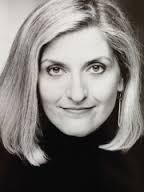|
VOICE ACTING
As Your Voice Ages, Training Overcomes
Barriers. But More Calls Coming For 'Seniors'
 By Kim Handysides By Kim HandysidesVoice Actor
One of the reasons I love voice acting is how it shatters the barriers of age. You can be an actress over 40 and still have a profitable career, or a 19-year-old male neophyte with a great set of lungs and awesome performance capabilities and make a living.
Over the past year, I've been hired to perform the voice of a 22-year and a 66-year old and multiple ages in between.
In many ways the microphone is much more merciful than the camera. And in other ways it's more revealing.
AS WE AGE ...
Our pitch doesn't change much as we age. Both men and women generally hold the same tone from the age of about 20 until 60 to 65. An untrained voice at that Golden Age generally goes up in the case of a man, and down in the case of a woman.
Other voice changes within the general population include slower speech, elongated syllables and more frequent pauses (for air).
A trained voice can work around that, meaning voice actors can continue working well into retirement, if they so choose.
Diet, exercise, and plenty of rest are also part of that magic vocal health formula.
What does change with the decades is vocal resonance. It deepens. Also:
CALLS FOR 'MIDDLE AGE' & 'SENIOR' VOICES
I don't know about you, but now that the dust has settled with the emergence of the millennials into the marketplace, I'm seeing a surge of work calling for middle age and/or senior voices, especially in the B2B sector.
Whether Gen Xer or Boomer, the over-50 consumer crowd is very active in the world and in the marketplace. They dominate in terms of investment and are involved in a lot of ventures initiated by themselves or in sync with their younger counterparts.
There is also a shift in what we traditionally think of as "senior. " Gen Xers are still getting over the fact that they've edged into their fifties. And while Boomers may be embracing retirement, they don't like to think of themselves as old.
SUBTLE SENIORS
Today's "senior" voices are seasoned. They're mature. They're mellowed.
Performance-wise, the traditional vocal "fry" "cackle" and tonal "drop" of June Foray's Granny on the Looney Tunes or Dan Castelleneta's Abe Simpson don't translate well.
"Talking senior" is much more subtle. Think of Morgan Freeman or Bill Nighy. Frances McDormand, Meryl Streep or Allison Janney. These are our seniors and they are the epitome of cool.
WHAT ARE SENIORS VOICING?
What products are being targeted to seniors? The obvious include luxury cars, real estate, travel, financial investments and healthcare.
But there's also technology and "bucket list" adventures/pastimes.
Seniors are connected. Yeah, they mostly live on Facebook, but they like to stay abreast of technology. So they are on Spotify and Pandora as well as local radio and TV channels. Quite a few even have Instagram profiles and know what to do with them.
YOUR VOICE APPROACH
The kind of narration or character approach I use to successfully connect with seniors in a voice-over read includes descriptors like:
Technically, I'll often relax my throat and drop into the lower register. But not always. It depends on the character. Many older females speak in higher tones.
AN UNTAPPED MARKET
There is a disconnect when it comes to marketing to this greying-haired set, though. The over-50 crowd comprises about half the population and accounts for over half of consumer spending, but only see 10% of marketing targeted toward them. Currently.
My prediction? This untapped market should see a lot of growth in the next few years as millennials take up the marketing baton, see where the opportunities lie, take the next leg and run with it.
-----------------
ABOUT KIM Kim Handysides is a top voice-over artist in commercials, eLearning and narration. She loves dogs, mountains, beaches and story. With a background in theatre and film and a thorough grounding in radio and television, she works a lot and loves sharing advice, tips and experience with anyone who asks. Email: KimHandysides@gmail.com Web: www.KimHandysides.com CLICK HERE FOR MORE HELPFUL VOICE ACTING ARTICLES |
As of the NEW website launch, 03/22/2012





.png)




The first step is to take training from a number of different teachers/coaches. Then when you're comfortable with your professional skills, one of those coaches will likely be a good one to produce and direct your VO demo. After that, it's a matter of marketing to get your name and voice out there.
Here's more:
https://www.voiceoverxtra.com/newcomers.htm
If you love voice acting and have persistence, you'll do well.
That said, I have one lingering question: HOW does one break into the voice-acting business? I've been told that my voice is "real", and that it "has wisdom", and that I "should do commercials". But, what I have not been told is, "You're hired," nor even, "This is how you apply."